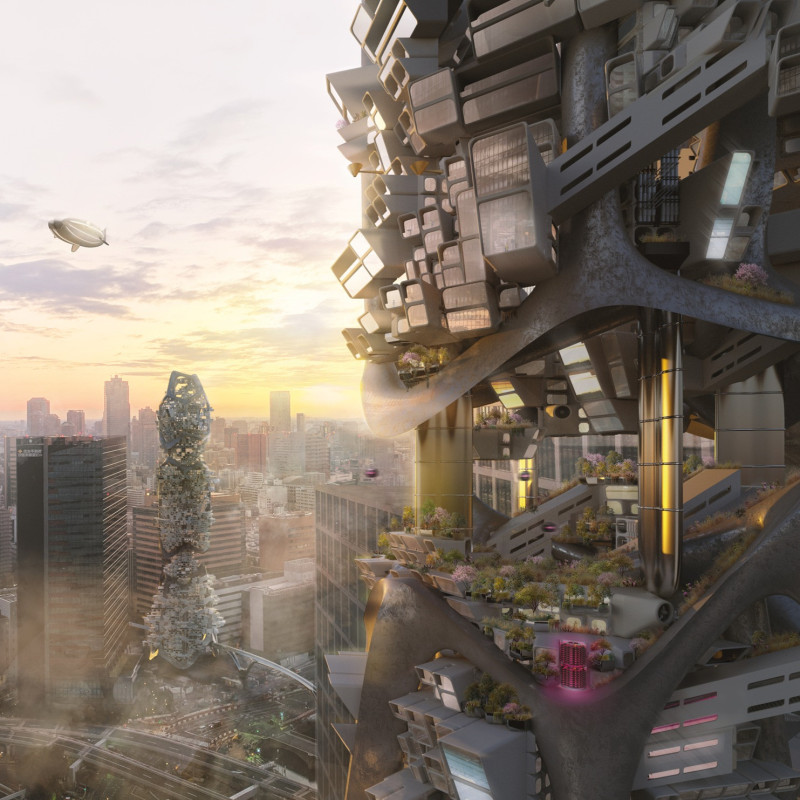5 key facts about this project
Modularity and Functionality
One of the primary features of the Glo-Cal Experience is its modular construction. The architecture consists of distinct units that can be assembled, disassembled, or reconfigured as needed. This flexibility enables the project to effectively respond to fluctuating economic conditions and evolving consumer preferences. Each module is purposefully designed for a specific function, such as accommodation, small retail businesses, dining areas, and community spaces. The integration of these different modules creates an interconnected environment fostering social interaction while supporting local entrepreneurial efforts.
Sustainable Material Use
The project emphasizes sustainability through the careful selection of materials. Key materials include reinforced concrete for structural support, glass for transparency and light, steel for durability, and advanced composite materials that promote environmental performance. Additionally, the implementation of green roof systems introduces local vegetation, contributing to urban biodiversity and enhancing thermal efficiency. By prioritizing sustainable practices, the Glo-Cal Experience aims to minimize its environmental impact while promoting an eco-conscious ethos among its users.
Engagement with Local Culture
What sets the Glo-Cal Experience apart is its strong focus on local culture. The architectural design facilitates cultural exchange through diverse programming, showcasing local art, cuisine, and traditions. By incorporating spaces dedicated to community events and exhibitions, the project aims to foster a sense of belonging among both residents and visitors. This unique aspect not only enhances the user experience but also plays a crucial role in economic stimulation by supporting local businesses and artisans.
Technological Integration and User Comfort
The strategic implementation of technology further enhances the project's functionality. Smart building systems manage energy use and climate control, facilitating a comfortable environment for users while optimizing operational efficiency. The design's emphasis on transparency, with large glass surfaces, creates a seamless connection between indoor and outdoor spaces. This integration contributes to an inviting atmosphere that promotes interaction and exploration.
In summary, the Glo-Cal Experience serves as an innovative response to the challenges of contemporary urban life. Its modular construction, sustainable material choices, and commitment to cultural engagement position it as a noteworthy example of modern architecture. For those interested in exploring detailed aspects of the project, including architectural plans, architectural sections, and architectural designs, further investigation into the Glo-Cal Experience is encouraged. Visit the project presentation to gain deeper insights into its architectural ideas and overall design approach.























